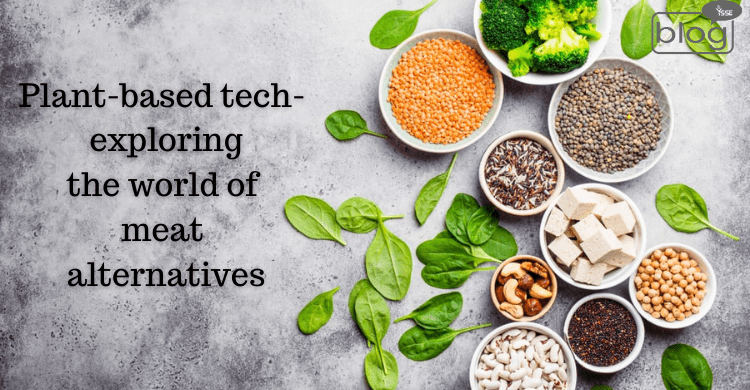The food business has seen many change in recent years, especially with regard to meat substitutes, thanks to the development of plant-based technology. As health, environmental, and animal welfare issues gain more traction, consumers are shifting more and more toward plant-based alternatives that not only taste and feel like traditional meat but also have many advantages for people and the environment.
The Rising Need for Plant-Based Meat Substitutes:
Growing knowledge of the negative environmental effects of traditional meat production, ethical concerns about animal welfare, and a desire for better food options have all contributed to the steady increase in the demand for meat substitutes around the world. In order to address this demand, plant-based technology has become increasingly important, providing creative solutions that go against the traditional wisdom around meat eating.
Technological Advancements in Vegetable Meat:
Impossible Foods and Beyond Burgers: Businesses such as Beyond Meat and Impossible Foods are well-known for creating plant-based burgers that taste and feel a lot like classic beef patties. These businesses create goods that appeal to both vegetarians and meat lovers by using cutting-edge technologies to extract protein from plants like potatoes, soy, and peas.
Cell-Based Meat: The creation of cell-based meat is among the most revolutionary developments in the field of plant-based technology. Real meat can be produced in labs without requiring conventional farming by growing animal cells in a regulated environment. This approach tackles issues pertaining to animal welfare in addition to lessening the environmental impact.
3D printing technology : The application of 3D printing technology to the food industry has created new opportunities for the production of complexly structured and texture plant-based meat substitutes. This method gives chefs and food scientists exact control over the finished product’s composition, allowing them to experiment with a variety of plant-based ingredients.
Effect on the Environment:
In addition to altering the way we eat, plant-based technology is paving the way for a more environmentally responsible and sustainable future. Deforestation, water degradation, and large greenhouse gas emissions are linked to traditional meat production. Customers can significantly contribute to lessening their ecological footprint and fostering a healthier planet by choosing plant-based substitute.
Advantages for Health:
Diets based mostly on plants have been related to a number of health advantages, such as decreased risks of diabetes, heart disease, and several types of cancer. Plant-based technologies are constantly enhancing the flavor and nutritional value of meat substitutes, allowing people to have a varied and fulfilling diet without sacrificing their health.
Obstacles and Potential Future:
Plant-based technology has come a long way, but there are still issues to be resolved, such as improving texture and taste, being financially viable, and gaining traction. Ongoing studies and development, however, point to a bright future for meat substitutes that may completely change the way we think about eating.
In summary:
With the advancement of plant-based technologies, the realm of meat substitutes is become more fascinating and approachable. There is no longer a market niche for plant-based alternatives to meat, from steaks and shellfish to burgers and sausages. With a rising focus on innovation, health, and sustainability, plant-based technology is revolutionizing the food business and offering consumers a wide range of delectable and environmentally responsible animal substitutes. With the advent of plant-based technology, we can see a more sustainable and humane future, whether it is motivated by ethical, environmental, or personal health objectives.
For more such blogs click here
Writer :
Sadia haque
Intern
Content Writing Department
YSSE.

